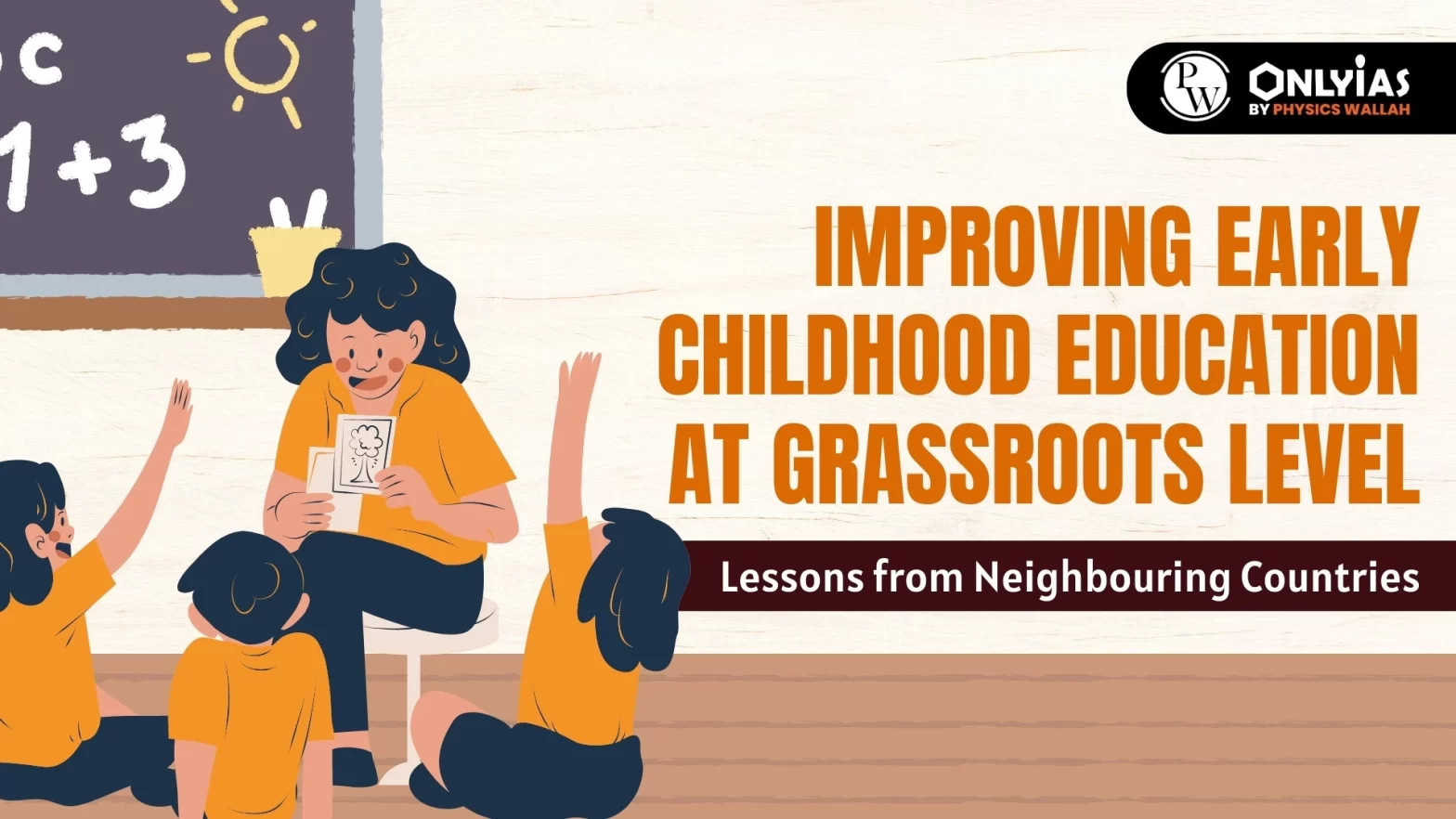Context: This article is based on an Editorial “An experiment in education at grassroots level schools in Bangladesh” Which was published in the Hindu. Recently, a book by Swati Narayan “Unequal,” exposes inequalities in India by comparing social indicators with neighboring countries such as Bangladesh, Sri Lanka, and Nepal and revealing disparities in health, education, nutrition, and sanitation.
| Relevancy for Mains: Reforms in Early Childhood Education System at Grassroots Level. |
Kajoli Early Childhood Education: A Model for Empowerment of Marginalized Communities
- The Kajoli Early Childhood Education Model: It is a learning model, based on play and peer learning.
- Dedication by Teachers: Despite limited resources, teachers show dedication and use innovative methods for their children.
- Support from NGOs: Across the country, there are numerous such learning centers operated largely by NGOs, including BRAC (earlier called the Bangladesh Rehabilitation Assistance Committee).
Also Read: Rethinking India’s Exam-Centric Education System
What are the differences between students from Bihar and Bangladesh?
- Based on Reading:
- Excellent Performance of Bangladeshi Students: As per the results of the Survey, Bangladeshi students outperform their Indian counterparts. Almost 90% of the grade 5 students read at least a grade 2-level paragraph in Bengali.
- In Nepal: Nearly two-thirds of the students in grade 5 were equally competent.
- A Concern for Bihar: Less than half the students could read as fluently.
- These results for Bihar were nearly identical to those in the Annual Status of Education Report that the NGO Pratham has been preparing for the last decade in India.
- Based on Tuitions:
- In Bangladesh: Students from the poorest families turn out to be better learners than the wealthiest.
- This is due to the competent and dedicated teachers trained in joyful learning techniques, timely availability of textbooks, scholarships for poor and female students as well as the Bengali cultural emphasis on education.
- In Nepal: Family income did not influence learning levels.
- In Bangladesh, on average only 35% and, in Nepal, only 29% of students paid for extra tuition.
- In Bihar: Students from more affluent families scored markedly better than those from poorer ones.
- This inequality is largely due to the additional money that wealthier families spend on private schools and private tuition.
- Also, recruiting local teachers, and many upper-caste teachers with fake degrees worsened the situation.
- Prevalence of Corporal Punishment: Even though corporal punishment is strictly against the law.
- Many children were officially enrolled in government schools but did not attend classes.
- As per Survey, 82% of students enrolled in private schools and 44 per cent in government schools also went for several hours of private tuition.
Conclusion:
India needs to take action against such worsening conditions and learn from neighbors to flourish the future of India with knowledge.
![]() 7 Dec 2023
7 Dec 2023
